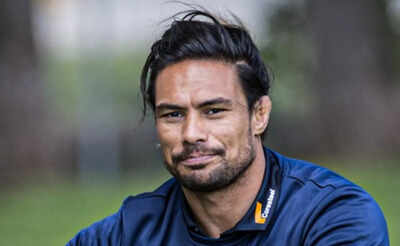ARTICLE AD BOX

Maori All Black Shane Christie passes away at 39 (Image credits: IG/X)
A promising career cut short, years of lingering head trauma, and a mission to raise awareness — the sudden death of Shane Christie has again thrown rugby’s most uncomfortable truth into focus.
The former Highlanders flanker and Maori All Black was found dead at his home in Nelson at just 39, leaving the sport shaken and searching for answers.
From local underdog to Maori All Black star
Christie’s rise through New Zealand rugby was as fast as it was inspiring. A late bloomer, he forced his way into the Tasman Mako side before pulling on jerseys for the Otago Highlanders, Canterbury Crusaders, and eventually the Maori All Blacks.
By 2016, he had become a key figure in the Highlanders pack, admired for his tireless work rate and influence off the field.
With Tasman, he captained the Mako to the ITM Championship in 2013, cementing his reputation as a natural leader.But by 2017–18, his career was over — not because of age or form, but because of repeated concussions that left him struggling with headaches, memory gaps, blurred vision, and speech difficulties. The game that defined him also forced him into early retirement.
Living with the invisible pain of concussions
Retirement should have been a chance to recover, but for Christie the symptoms never faded.
He spoke openly about the silent toll of concussions: constant migraines, sudden memory lapses, mood swings, and vision problems.These weren’t fleeting knocks. They were markers of deeper neurological damage — injuries invisible to the eye but lasting long after the stadium lights dimmed. By breaking his silence, Christie became a rare voice of candor, forcing rugby to confront what many players endured privately.
Turning personal struggles into a voice for change
Christie didn’t retreat after rugby. Instead, he redirected his energy into advocacy. The 2023 death of his close friend and teammate Billy Guyton — later found to have Chronic Traumatic Encephalopathy (CTE) — deepened his resolve. Christie joined the Billy Guyton Foundation and pledged his own brain to research.“Without brain donations, we’re not going to be able to identify how long it takes to get this disease.
It’s important to help the research in New Zealand,” he said, becoming a powerful advocate for change in a sport still grappling with its concussion crisis.
A shocking death that leaves rugby heartbroken
On August 27, 2025, Christie was found dead in his Nelson home. Police confirmed the case had been referred to the coroner, though no cause has been made public. Friends fear it may have been self-inflicted, underscoring the crushing mental health burden faced by players dealing with long-term injuries.Tasman Rugby said it was “shocked and gutted,” while New Zealand Rugby described his passing as a loss that would be “deeply felt across the community.” Former teammates have echoed calls for stronger mental health support, warning that the issue is far bigger than one man.
More than numbers: Remembering the man behind the tragedy
Concussion data in rugby can feel clinical, reduced to charts and percentages. Christie’s death rips through that abstraction. He was a son, teammate, and friend — a man known for his humor and resilience who should have had decades ahead of him.By speaking openly about his struggles and pledging his brain to science, Christie ensured his legacy will go beyond the field. His passing is not just another statistic; it is a human reminder of the cost of collision sports, and a call to act before another player is lost too soon.Also read: MLB Trade Deadline: New York Mets land all-star closer Ryan Helsley in blockbuster bullpen revamp



.png)
.png)
.png)
















 6 hours ago
3
6 hours ago
3








 English (US) ·
English (US) ·